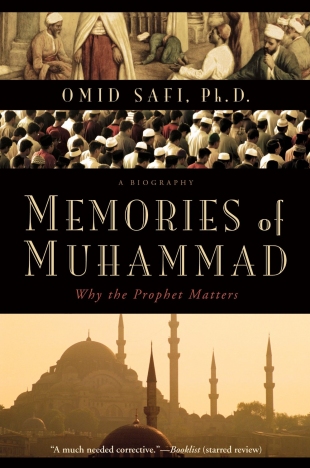"It is one thing to speak of Muhammad as the Prophet, the Messenger of God, in terms of his relations to God. Muslims have also imagined Muhammad as the model human being who also illustrates the perfection of every human relation. He is not merely the Prophet; he also demonstrates . . . how to be the ideal husband and father, which is crucial in portraying the life of intimacy and affection. Far from illustrating a model of patriarchy, in which the wife's duty is to provide unquestioned obedience, here Khadija shelters her husband and comforts him, as he would do for her in other circumstances. Some modern Muslims, framing their critique of Islam in the context of gender issues, have been quick — perhaps too quick — to point out that Muhammad was fifteen years younger than Khadija and that she was a successful and independently wealthy businesswoman who employed Muhammad first to run her caravans to Syria. Indeed, Khadija has provided many modern Muslim Women with an example of a self-sufficient woman who entered into an intimate marital relation with a man. Khadija in fact proposed marriage to Muhammad, something unheard of in Muhammad's age and rare even today.
"There is something else about the marriage of Muhammad and Khadija that deserves further examination as the very model of an intimate marital life in Islam. What is remarkable about Khadija is not merely that she was a successful businesswoman, but also that she and Muhammad embodied a nurturing and loving relationship that lasted for twenty-five years, until her passing. The narratives of Muhammad's life praise her as they do no other companion of Muhammad's:
She was the first to believe in God and His messenger, and in the truth of his message. Through her, God lightened the burden of His prophet. He never met with contradiction and charges of falsehood, which saddened him, but God comforted him by her when he went home.
She strengthened him, lightened his burden, proclaimed his truth, and belittled men's opposition. May God Almighty have mercy upon her!
"This support and affection between Muhammad and his wife Khadija, even their erotic relation, would undoubtedly shape many of his views toward women. One of his statements that would be cited by many later Muslims was the following hadith (saying of the Prophet Muhammad):
Three things from this world of yours
have been made lovely to me:
perfume,
women,
but that which brings delight to my eyes
is prayer.
"Here perfume may be taken as an appreciation of all that is natural and beautiful — indeed, the entirety of the natural cosmos. Women are the connection, the linchpin, between the natural realm of beauty and the spiritual domain. Later Muslim mystics, such as the thirteenth-century Ibn 'Arabi, interpreted this saying of Muhammad's to mean that the spiritual and the sacred ('prayer') enter this world ('perfume') through women."
